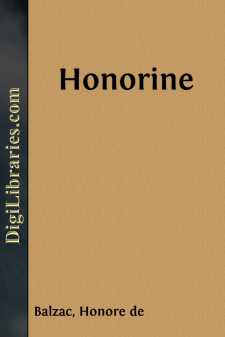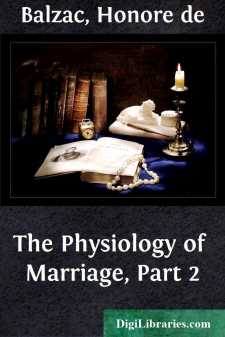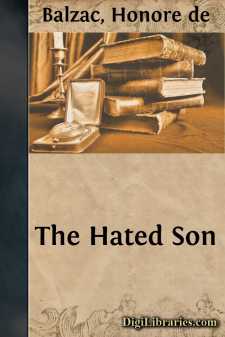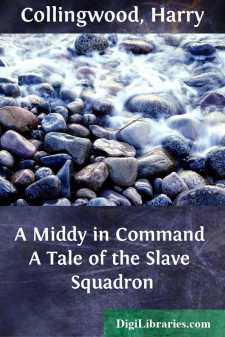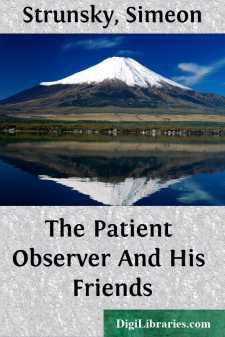Categories
- Antiques & Collectibles 13
- Architecture 36
- Art 48
- Bibles 22
- Biography & Autobiography 813
- Body, Mind & Spirit 142
- Business & Economics 28
- Children's Books 17
- Children's Fiction 14
- Computers 4
- Cooking 94
- Crafts & Hobbies 4
- Drama 346
- Education 46
- Family & Relationships 57
- Fiction 11829
- Games 19
- Gardening 17
- Health & Fitness 34
- History 1377
- House & Home 1
- Humor 147
- Juvenile Fiction 1873
- Juvenile Nonfiction 202
- Language Arts & Disciplines 88
- Law 16
- Literary Collections 686
- Literary Criticism 179
- Mathematics 13
- Medical 41
- Music 40
- Nature 179
- Non-Classifiable 1768
- Performing Arts 7
- Periodicals 1453
- Philosophy 64
- Photography 2
- Poetry 896
- Political Science 203
- Psychology 42
- Reference 154
- Religion 513
- Science 126
- Self-Help 84
- Social Science 81
- Sports & Recreation 34
- Study Aids 3
- Technology & Engineering 59
- Transportation 23
- Travel 463
- True Crime 29
Honorine
by: Honore de Balzac
Categories:
Description:
Excerpt
HONORINE
If the French have as great an aversion for traveling as the English have a propensity for it, both English and French have perhaps sufficient reasons. Something better than England is everywhere to be found; whereas it is excessively difficult to find the charms of France outside France. Other countries can show admirable scenery, and they frequently offer greater comfort than that of France, which makes but slow progress in that particular. They sometimes display a bewildering magnificence, grandeur, and luxury; they lack neither grace nor noble manners; but the life of the brain, the talent for conversation, the "Attic salt" so familiar at Paris, the prompt apprehension of what one is thinking, but does not say, the spirit of the unspoken, which is half the French language, is nowhere else to be met with. Hence a Frenchman, whose raillery, as it is, finds so little comprehension, would wither in a foreign land like an uprooted tree. Emigration is counter to the instincts of the French nation. Many Frenchmen, of the kind here in question, have owned to pleasure at seeing the custom-house officers of their native land, which may seem the most daring hyperbole of patriotism.
This preamble is intended to recall to such Frenchmen as have traveled the extreme pleasure they have felt on occasionally finding their native land, like an oasis, in the drawing-room of some diplomate: a pleasure hard to be understood by those who have never left the asphalt of the Boulevard des Italiens, and to whom the Quais of the left bank of the Seine are not really Paris. To find Paris again! Do you know what that means, O Parisians? It is to find—not indeed the cookery of the Rocher de Cancale as Borel elaborates it for those who can appreciate it, for that exists only in the Rue Montorgueil—but a meal which reminds you of it! It is to find the wines of France, which out of France are to be regarded as myths, and as rare as the woman of whom I write! It is to find—not the most fashionable pleasantry, for it loses its aroma between Paris and the frontier—but the witty understanding, the critical atmosphere in which the French live, from the poet down to the artisan, from the duchess to the boy in the street.
In 1836, when the Sardinian Court was residing at Genoa, two Parisians, more or less famous, could fancy themselves still in Paris when they found themselves in a palazzo, taken by the French Consul-General, on the hill forming the last fold of the Apennines between the gate of San Tomaso and the well-known lighthouse, which is to be seen in all the keepsake views of Genoa. This palazzo is one of the magnificent villas on which Genoese nobles were wont to spend millions at the time when the aristocratic republic was a power.
If the early night is beautiful anywhere, it surely is at Genoa, after it has rained as it can rain there, in torrents, all the morning; when the clearness of the sea vies with that of the sky; when silence reigns on the quay and in the groves of the villa, and over the marble heads with yawning jaws, from which water mysteriously flows; when the stars are beaming; when the waves of the Mediterranean lap one after another like the avowal of a woman, from whom you drag it word by word....


